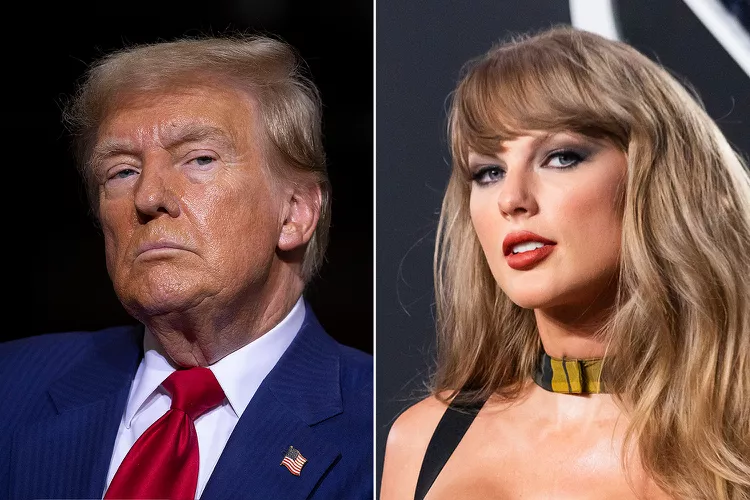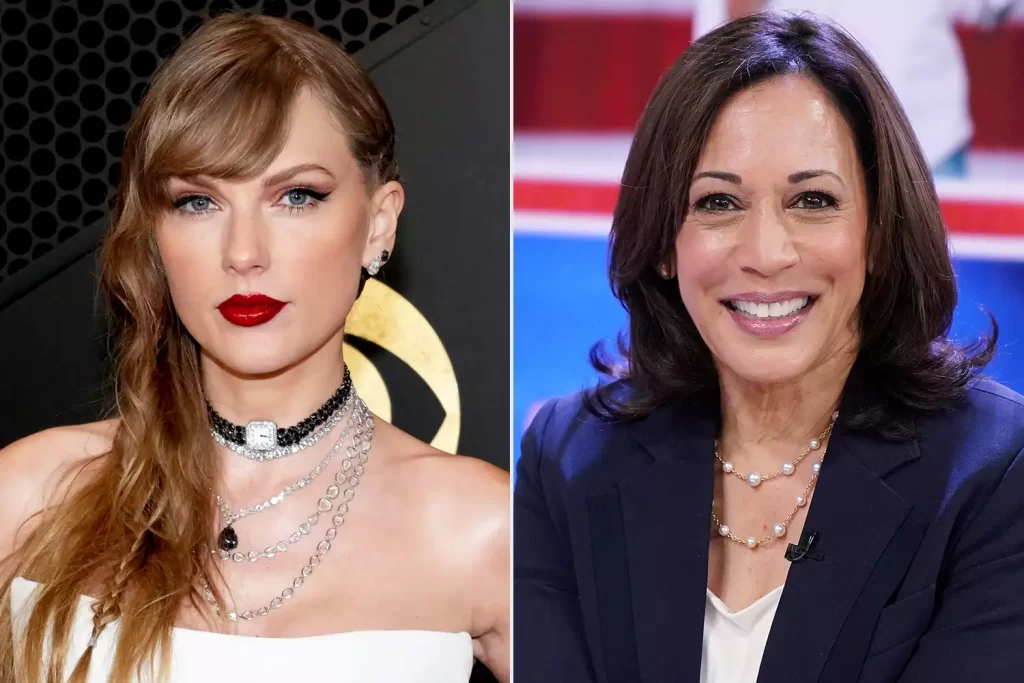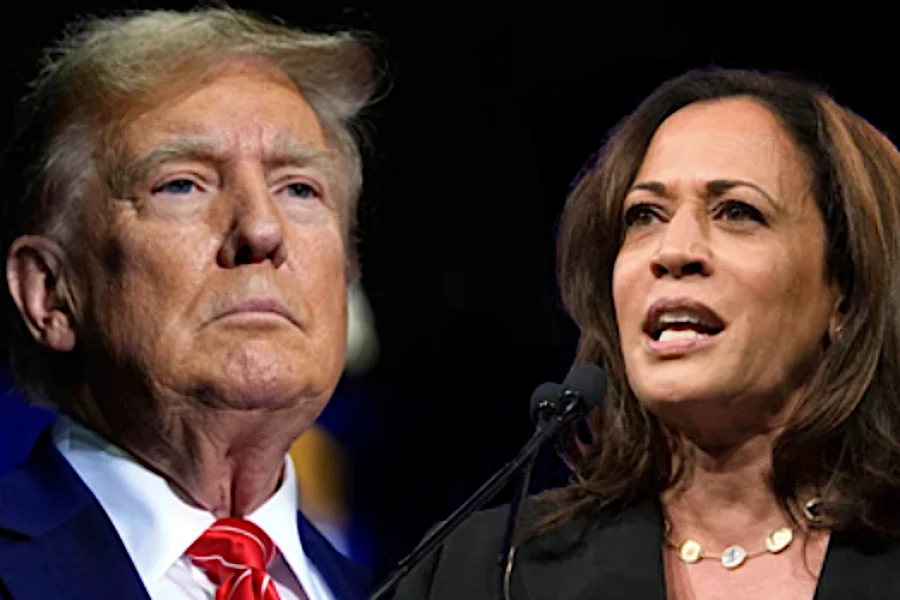Former President Donald Trump publicly expressed his disdain for pop star Taylor Swift on Sunday, following her endorsement of Vice President Kamala Harris in the 2024 presidential election.

“I HATE TAYLOR SWIFT!” Trump, 78, wrote on his social media platform Truth Social, responding to Swift’s September 10 Instagram post supporting Harris.
Swift, 34, endorsed Harris, 59, shortly after the vice president’s debate with Trump. In her post, Swift called Harris “a steady-handed, gifted leader” and praised her running mate, Tim Walz, for “standing up for LGBTQ+ rights, IVF, and a woman’s right to her own body for decades.”
The singer’s endorsement came after addressing fake AI-generated images used by Trump’s campaign to falsely suggest her support. Swift urged her followers to research candidates’ policies and make informed voting decisions.
Trump’s reaction to Swift’s endorsement wasn’t limited to social media. In an interview with Fox & Friends, he stated, “I was not a Taylor Swift fan. It was just a question of time. … But she’s a very liberal person. She seems to always endorse a Democrat. And she’ll probably pay a price for it in the marketplace.”

The incident has highlighted the growing influence of celebrity endorsements in political campaigns. The Democratic National Committee quickly capitalized on Swift’s support, launching billboard campaigns in New York City and Las Vegas with the phrase “We’re in our Kamala era,” referencing Swift’s record-breaking Eras Tour.
Despite his criticism, Trump’s campaign continues to use Swift’s likeness, recently sharing a post on X (formerly Twitter) that read, “Calling all Swifties for Trump,” along with merchandise featuring a “Trump Era” T-shirt.

This public clash between Trump and Swift underscores the polarized nature of the upcoming election and the significant role cultural figures play in shaping political narratives. It also reflects the complex relationship between celebrities and politicians in the age of social media, where endorsements can quickly become flashpoints in broader cultural and political debates.
As the 2024 presidential race heats up, the impact of celebrity endorsements and the reactions they provoke from candidates are likely to remain a notable aspect of the campaign landscape, potentially influencing voter perceptions and engagement.



